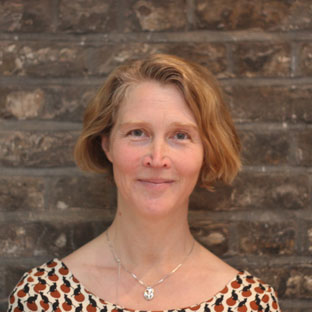It is good to hear the government confirm this week that they will be publishing a green paper on children and young people’s mental health issues before the end of the year, with a focus on the role of social media.
Rising levels of mental ill-health amongst our children and teenagers is an enormous concern for schools in the RSA Family of Academies, which is why we’ve launched our comprehensive approach to mental health in schools programme to ensure that all adults in schools have some level of training in identifying and providing first line support to children struggling with a range of difficulties including anxiety and depression.
As a Mum of three teenage girls I’m all too conscious of the way in which social media brings new challenges to their school lives: how the fallings out and squabbles that were previously confined to school now extend into our home lives; the vast range of useful to inappropriate information that is available, unmediated, at the touch of the button, from unrealistic airbrushed bodies to news of terrorist atrocities to pornographic images; and the low level anxiety that one of them will be persuaded to share a topless photo (or worse) which ends up all over the internet, with disastrous consequences all round.
So looking at social media as part of the green paper seems sensible.
But I do hope that the authors of the green paper are willing to look at how the school system itself is likely to be contributing to the increased prevalence of mental ill-health amongst our teenagers.
It is no secret that the new GCSEs have been introduced to be ‘more demanding, more fulfilling, and more stretching’. It is hard to argue that exams shouldn’t be made more difficult without being accused of the ‘soft bigotry of low expectations’, but it is also inarguable that the GCSE exam system is set up in such a way that a certain proportion of pupils must fail. We have yet to see the full effect of the GCSE reforms, but this year’s changes have already significantly increased the number of ‘failures’ at 16.
In 2016, 59% of pupils achieved a grade C or above in English and maths. These passes, taken alongside a clutch of other GCSEs, would normally be the passport to progressing into the next level of education and potentially on to a degree or apprenticeships.
This year, however, DFE provisional figures indicate that just 39% of pupils achieved level 5s, the ‘strong pass’, in both English and maths. Therefore 20% of this cohort, pupils who last year might reasonably have expected to progress to level 3 qualifications – A levels or BTECs – have had their futures thrown into doubt. And in total 61% of all pupils, 18 pupils in every class of 30, will have been identified as failures, with uncertainty about their next steps. Might this, just possibly, have an impact on the mental health and well-being of these young people?
We also need to take a look at the way in which the Progress 8 measure, when taken together with the significant budget pressures that schools are facing, is restricting options for pupils beyond the core academic subjects. Ministers may still be pushing out statistics to show that arts subjects have not declined, yet we know that the number of schools offering design and technology has dropped dramatically, and vocational qualifications are also being squeezed.
And I’m not convinced that the recent commentary by HMCI on the curriculum mean that we are likely to see more priority being given to vocational or creative subjects any time soon. In her statement she said that,
“If a pupil gains valuable knowledge, for example in history, but does not gain a grade 4, they will still be better educated for having studied it.”
Of course, this begs a number of questions, including what, if anything, the pupil would have been studying instead, and whether the choice to study history was made on the basis of a pupil’s interest, aptitudes, and future career goals, or because it filled a Progress 8 bucket. Clearly this person would be better educated than the person who had studied nothing. But let’s assume we are talking about a school context, and that if the pupil wasn’t studying history they would be studying something else, a non e-bacc subject or a vocational subject perhaps. Will that youngster’s self-esteem and career prospects really be better served by securing a 3 in history, rather than a pass in drama, or health and social care?
And whilst we’re on the subject of self esteem, let’s pause briefly on the practice of setting. UCL’s study of pupil grouping is only part way through, but they have this week published further indications that set placement in maths and English affects not only the child’s self confidence in those subjects, which might reasonably be expected, but also affects their general self-confidence.
When you look at it from the perspective of low prior attaining pupils in secondary school perhaps the surprising fact isn’t the rising prevalence of mental ill health, but rather that so many of these youngsters emerge as confident, mature young people ready to try to make their way in the world. I do hope that the authors of the green paper have the courage to consider these issues.
Alison Critchley
Chief Executive, RSA Academies
@Ali_Critchley

Be the first to write a comment
Comments
Please login to post a comment or reply
Don't have an account? Click here to register.